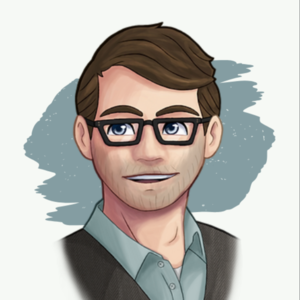When anyone returns from a trip, it’s a common rule that people don’t present others with bad news, at least not initially. And Mr. Samuell Pritchett was no exception to this rule.
Work was behind on renovating the resort.
The gardener could not acquire the specific number of flowers that were specified to the health resort’s courtyard garden, and would be planted after the resort opened again.
Repairs needed to be completed on the Central Building’s medical floor, along with new technology that needed to be brought in.
The shipment of provisions for the coming month has been delayed by the Westwinds, and would be arriving two days late.
The nurses conveniently left out Jacob’s arrival to the sanitarium, and were unable to tell them that he had destroyed one of their premium apartment suites.
At least for the time being. They did, however, inform him of their more aggressive methods of handling difficult patients.
Mr. Pritchett then swept through Raychester with a wave of order and organization.
Mr. Pritchett was a heavyset man with a large gut that stuck out and curved his back naturally. He had greying hair interwoven through his bright orange hair, with unnaturally, yet naturally, thick eyebrows that looked like large caterpillars. His throat vibrated a wonderful deep tone that resonated no matter where he was. His long nose and high cheekbones made him look older and more serious, but in actuality, he was a very humorous man with a pleasing sort of laugh who knew when to be thoughtful and stern.
He wasn’t made aware that his new tenant, Jacob Haverman, had arrived the on time until about another month after his problems that he had presented with upon his return were sorted out. He was presented the information when the weather had become more agreeable upon his return. The snow stopped falling, and the winds that had brought chills dissipated almost overnight.
As Mr. Pritchett stood out overseeing the planting of the flowers, the sun peaked out from the cloud cover, revealing a heavenly blue sky. The winds calmed to a soft gale, shuddering the newly planted trees in the central courtyard.
“Sir?” whispered his secretary. Mr. Pritchett’s secretary was a tall, awkward man with thinning brown hair and a slightly effeminate, weak sort of personality, glowing green eyes and freckles that were scattered like the stars in the sky across the bridge of his nose and his cheeks.
“Yes, McCarthy?” he asked.
“The nurses have informed me that the new arrival to the Central Building was delivered on time.”
Finally, the heavyset man turned to his secretary. “Why didn’t they tell me that when I had arrived?” Mr. Pritchett signed. “Either way, it’s good news. Though it would’ve been pleasing to have been greeted with good news.”
There was a pause, McCarthy obviously hesitating. “From the nurse’s reports, it isn’t that, sir.”
Mr. Pritchett let out a long, slow sigh before asking, “Why wasn’t I informed of this when I had returned from holiday?”
“I don’t know the reason, sir. I…I don’t have any overt reasons from the Head Nurse in the report. Do you want me to ask her?”
“I’ll do it later. Can you acquire the weekly reports for the new arrival?” McCarthy bowed, and headed into the Central Building’s front entrance.
The weekly reports were abysmal. There was an enormous lack of information about Jacob’s background, only his name, hometown, mother’s name, his condition, and his mentality.
He hailed from Syental, one of the poorest neighborhoods in Antham. His mother’s listed name was Mellowly, a partial anagram of Michelle Hollway’s name. His condition was defined as “delusional” and “depressed”. His mentality was less than a sentence long – “often times pleasant with a good laugh”.
As a final note, little bits and pieces of the state of the apartment were mixed into the comments.
He disagreed with the idea of a patient staying in the West Wing, but Mr. Pritchett condemned the idea of a disorderly patient more. The following morning, he oversaw the renovation of the first floor, which was weeks behind schedule. The hallways that Aiden had stumbled into had finally been redressed in their lavish moldings and decorations, now accented in a soft yellow that made the corridor look golden at night.
With his master set, Mr. Pritchett entered Room 506.
The curtains had been ripped off their metallic rods; those pieces of fabric that didn’t fall down so easily were tattered and blowing in the wind of the open windows like ragged flags of war. The walls were dented and the only organized furniture was that of Aiden’s still-covered mirror, side table with the faux flowers, and the table that balanced on a stack of books. Shelves had been torn down and swung about. One of the two chandeliers had crashed in the center of the room, spreading forth shards of tiny glass across the hardwood floors, which were now warped and discolored. A cabinet placed on its side had blocked the servant’s entrance; the cabinet doors had been scarred and ripped apart.
The apartment smelled of rot that hung in the air like a persistent, stifling heat.
“Who are you?” asked Aiden, appearing in the double doors leading into the bedroom. He covered himself with a bloodied bed sheet, his face still torn from his encounter with the workers.
Mr. Pritchett’s eyes were attracted to the red. “What happened to you?” he asked.
“Your workers on the second floor,” Aiden replied.
“Have you had the doctors look at it? It could become infected.”
“Let it.” Aiden looked down and gently rubbed the faux petals in between his fingers. “Who are you, and what do you want?”
“I’m the warden here. You call me ‘Sir’.”
“I would rather call you nothing.”
“Mr. Haverman, what - ”
“I’m going to stop you right there. My name is Aiden Whitebell, son of Governor Tomas Whitebell of Howlvale County in Eagleshaw. I am here because I am being punished.”
Mr. Pritchett stepped back, shifting his weight to his other foot. “Are you sure?”
“Yes, I am,” he replied.
Mr. Pritchett shifted his weight again and pushed back his long coat, placing his hands on his hips. “Mr. Haverman, I might not know a lot, but I can tell when someone is lying. And you’re telling the truth.” Aiden drew in a breath of stale air, the corners of his mouth curling into a smile. “That’s quite a delusion you have.”
“What?” Aiden whispered through his gritted teeth.
“Mr. Haverman, your delusion is something that is very dangerous. You’ve been here three months; has the therapy been helping?”
“It’s been three months?” Aiden whispered, a small whine being caught in his throat. “Is that how long I’ve been gone?”
“Has the therapy been helping?” Mr. Pritchett asked again.
“I haven’t gone to any therapy. I know who I am.”
“Mr. Haverman - ”
“It’s Whitebell.”
Mr. Pritchett cleared his throat. “Mr. Whitebell, you need to understand that, if you’re at Raychester Citadel Sanitarium, then there’s something wrong with you. It could be as drastic as oxeparitis or, or the sazarathic flu, it could be something with your lungs and the weather.” He stepped forward and paused, and kept walking, stopping almost three feet from the boy. “You’re here because you’re delusional, and showing signs of depression. Those mental illnesses can be cured here.” Mr. Pritchett turned and headed towards the door. “Which is why I’ve recommended you to be moved to the Central Building to aid in your recovery.”
“No, I’m staying here.”
Mr. Pritchett turned around and announced, “You’re going to be moved into the Central Building and that is final.” He paused in the door again and began with, “Mr. Haver-” but decided to humor the boy, “Mr. Whitebell, I sincerely believe I can help you recover.”
He balled the bed sheet in his fists. “You’re not moving me. I will stay here.”
“We shall see about that, Mr. Whitebell,” Mr. Pritchett sighed, and pursed his lips. He turned and returned to the Central Building, mulling over what drastic measures should be taken for the delusional Aiden Whitebell.
He began making a list of possible solutions: “Forced therapy, electricity therapy, lobotomy, surgery…”
In the almost five months since Aiden had last been on the school grounds, his parents still hadn’t noticed his disappearance. Neither had the school or his friends.














Comments (2)
See all